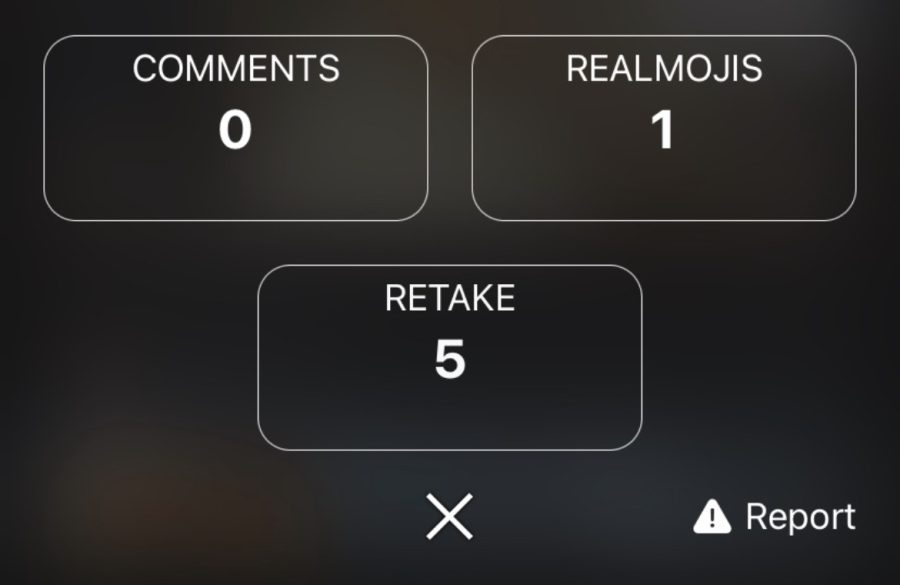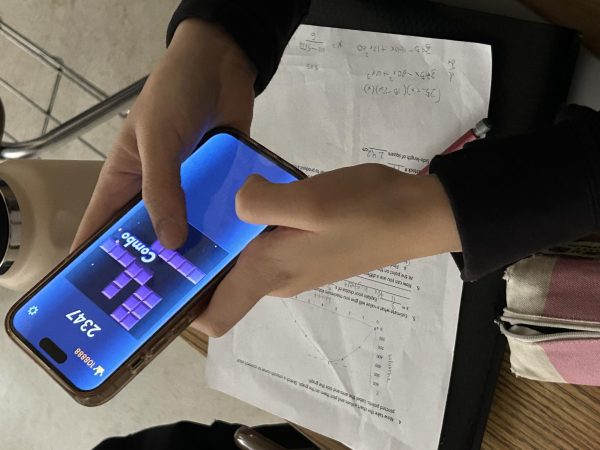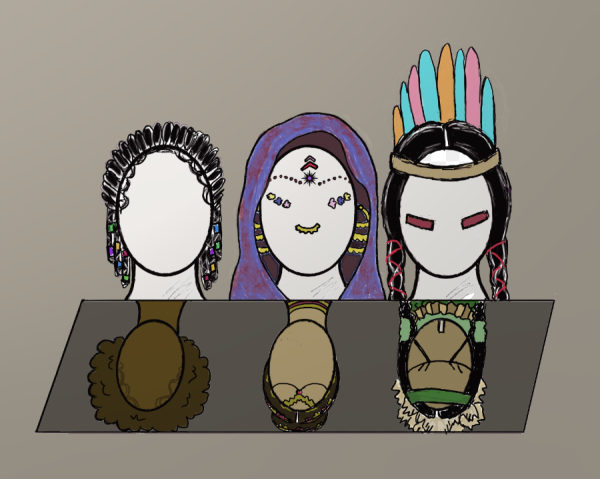BeFake
This feature, unique to BeReal, allows users to see how many times a friend retook a photo before deciding to post. While this was meant to promote posting the first photo a user takes, many have begun to slowly ignore this notion and use retakes, enforcing the idea that BeReal posts may not be as real as they seem.
A person approaches you on the street at a random time and demands you take a photo. Do you obey? Probably not. Most people do not like being told what to do — so why do 2.7 million people in the U.S. willingly succumb to the command of an app every day? While BeReal has exploded in popularity, it is impossible to deny the restrictive nature of an app that claims to force people to “BeReal.” Many feel that if a person truly wants to BeReal, they should be able to do so at any time of the day. So, are posts on BeReal promoting people to BeReal or to BeFake?
While taking a picture at a randomized time of day could ensure that users do not fabricate their photos, that one photo serves as your only post on the app until the next day. Without the freedom to post as many times as the user wants, the app can feel limited compared to other social media platforms.
“I don’t understand why you would take a picture at a certain time when you could post on Locket whenever you want to, post on Snapchat whenever you want to, post on Instagram; versus sitting there waiting for a time to ‘BeReal,’” Khylen Murray (12) said.
Another feature of the app that may be overlooked as an invasion to privacy to others beyond the user, is that when prompted to take a daily photo, a picture is taken by both the front and back camera — only seconds apart.
“If you’re in a public area and you’re taking the picture from both sides of the camera, there’s people in the photo who don’t know or don’t want to be in the photo, and you’re posting it anyways,” NaCoria Love (9) said. “So it’s like taking pictures without consent.”
The reason people may be so adamant about retaking their BeReals is because there is no feature to limit which friends view the post and which do not. When a user adds a friend back on BeReal, they can expect that friend to view every BeReal they post in the future. This limitation only adds to the restrictive nature of the app, taking freedom away from the user as it lacks any “close friends” or specific selection feature like on Snapchat or Instagram.
“I like how [on Snapchat] I can send pictures just to my certain friends,” Love said. “If you’re doing a BeReal, it sends or posts to everybody.”
Like most fads, BeReal’s longevity is likely going to be short, following in the footsteps of similar apps before it like Locket Widget. Locket Widget gives more freedom to users than BeReal, even giving the option to draw on or add words to photos. Despite these features, Locket Widget’s relevance faced a decline after experiencing a boom in popularity similar to BeReal’s. The nail in the coffin for BeReal could likely be increasingly dull content, as people begin to use the app more as it is intended to be and less of a social showcase.
“It’s going to get boring after a while when people stop faking it because it’s just going to be people taking pictures of their ceilings or laying in bed,” Pragma Rajashekar (9) said.
Ultimately, BeReal’s core idea may impact social media in the future, despite varied opinions on the app itself. Snapchat, TikTok and Instagram have historically been observed to “borrow” features from each other, and it is likely users’ fascination with BeReal may prompt them to install BeReal-esque features in their own apps — a phenomenon that can already be observed with TikTok’s “Now” feature.
“I feel like if more social media becomes like BeReal it’ll be a bad thing because people won’t be able to express themselves when they want to,” Murray said. “Instead of being real, they’re being told. Being real is like being true to who you are whenever you want to, how you want to, no matter what time it is.”
Your donation will support the student journalists of White Station High School. Your contribution will allow us to purchase equipment and cover our annual website hosting costs.








































